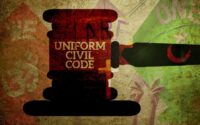MAINTENANCE AND WELFARE OF PARENTS AND SENIOR CITIZENS- CITIZENS ACT, 2007, A LIFELINE FOR AGED?
CASE LAW: RAMESH PAPPI VS ISHWAR DEVI
FACTUAL BACKGROUND:
A 76-year-old widow filed a case who was left by her husband, with one house and one shop in order to ensure her welfare. Afterwards, his son started beating her and took the house as well as the shop in his name by means of fraud in 2015. The widow went to the Panchayat authorities to have conciliation proceedings two or three times, but those results in vain. Due to which, she approached to the Magistrate under the Tohana sub-council (SDM) in Fatehabad, acting as a maintenance court by filing an application under Section 5(1) of the Maintenance and Welfare of Parents and Senior Citizens Act, 2007 to get the registry of the house and a shop to be returned to her and for protection of her life, liberty and property as maintenance.
SDM in August 19, 2019 ordered the son to return the house on behalf of the mother and provide ₹ 2,000 a month as subsistence allowance for her. And later on September 4, 2015, the transfer title deed was ordered to be cancelled by SDM. Contrary to the order, the son went to the appellate court, in Fatehabad, who overturned the findings but demanded that the widow to be paid maintenance and allowed to stay in her house. The order was challenged by a widow before a single judge’s bench on February 12, 2020 where the SDM order was ordered to be continued. Prior to the bench, the son had challenged the order of the single bench. Now, the high court upheld the order by SDM.
ISSUE:
Is the act named Maintenance and welfare of parents and senior citizens act, 2007 act as a lifeline for aged?
OBJECTIVES OF THE ACT:
This act imposes obligations on children to keep their parents / grandparents and an adult relative to treat with utmost care .The main attractions of this act are the provisions to protect the health and property of old age people. This initiative also provides for the establishment of old age homes for the elderly and the poor and it gives speedy remedies.
COURT’S JUDGEMENT AND OBSERVATION:
The Court found out that the petitioner’s claim of SDM passing an order which grants relief beyond what the respondent had requested was not fully understood. The Court noted that the respondent in pleading with the SDM had implied that her son had evicted her from the house fraudulently by transferring the house in his name. In addition, Section 5 (1) (c) of the 2007 Act empowers the SDM to take Suo Moto cognizance in this regard. The Court ruled out that “Where there is a provision of empowerment, it cannot be said that the SDM operated voluntarily without its capacity and provided relief in addition to the demand requested by Respondent No.1-Ishwar Devi”.
The main motto behind the parliament is to enact the Senior Citizens Act is to uphold the respect and dignity of an old age people. The old age people had faced a lot of challenges and state has lot of concern towards that. They face emotional and psychological difficulties along with physical vulnerabilities. They are totally dependent because of these difficulties. Rationalising the wellbeing of all people in the society is the moral law formulated through the legislation. The moral values that existed in the past in our society have been accepted as universal principles when the time passes. The state has considered the acceptance of such values and with the help of The Senior Citizens Act, it seeks to promote the common good. The Court further noted that the SDM’s order was well-founded and well-informed after a thorough investigation. The SDM contacted the relevant parties that is the respondent and petitioner and concluded that the applicant had neglected his mother and had not provided her with the basic resources even though the house had been transferred in his name.
On the contrary, the Court found that the order issued by the Appellate Tribunal was “evasive, imperceptible and erroneous in the eyes of the law and such use of force must be curtailed”. Accordingly, the Court concluded that the SDM exercised its jurisdiction under Section 23 of the 2007 Act and cancelling the relevant transfer of title to protect the interests of the aging defendant was permissible. To open the need for Section 23 (1) of the 2007 Act to protect the interests of elderly parents who are often at risk, the Court said,
Section 23 (1) of the 2007 Act stipulates that in the event that children fail to care for their parents after the transfer of their parent’s property, such transfer will be deemed to be fraudulent or coercive and under the influence of the Court. The provision under Section 23 (1) of the 2007 Act seeks to provide older persons with a dignified manner. “Accordingly, the Court rejected the petition in compliance with the order of the Single Court Judge and gave effect to the directions which was put forth by the SDM.
RELATED CASE LAWS:
Can Older Citizens Expel Children From Their Homes?
- Dattatrey Shivaji Mane v. Lilabai Shivaji Mane & ORS.
In the latter case, the Bombay High Court while highlighting the provisions of the Senior Citizen Act, 2007 (Senior Citizen Act) stated that the Act allows an adult including a parent who is unable to support himself or herself out of his or her income or be deprived of his or her property and if that adult citizen is unable to live a normal life to apply for this exemption i.e. removal under Section 4 of the Act not only for his or her children but also for grandchildren. In this case, the Respondent’s mother had lodged a complaint against the claimant (her son) with the other requesting that the maintenance be paid and the claimant’s reasons removed for various reasons. The Tribunal issued an order directing the applicant and other family members to withdraw from the tenure specified under Section 4 of the Maintenance and Welfare of Parents and Senior Citizens Act, 2007 (Senior Citizen Act). It would be fair to say here that the impugned premises belonged only to the Respondent’s mother. Dissatisfied with the above order, the petitioner filed a written petition before the Bombay High Court arguing that since the petitioner was keeping respondent number 1 for last few years, no eviction order could be issued by a court under Section 4 of the Older Persons Act.
- Senior Citizens Welfare Organisation vs State of Uttarakhand
In this case, the Uttarakhand High Court while recognizing the State’s failure to provide adequate old age homes for the elderly in the State has issued a number of binding orders.
- Pramod Ranjankar and Anr vs Arunshankar
The highlight of this case was that it gave the senior or old age people their rights over immovable property and eviction of abusive children.
FINAL THOUGHTS:
Definitely, this act acted as a lifeline for old people because it clearly defines the duties which should be paved by the children as well as grandchildren and it clears all the ambiguities thereby reduced the difficulties of the old aged.
REFERENCES:
- https://en.wikipedia.org/wiki/Maintenance_and_Welfare_of_Parents_and_Senior_Citizens_Act,_2007
- https://www.thehindu.com/news/national/other-states/punjab-and-haryana-hc-says-children-are-expected-to-look-after-their-elderly-parents-properly/article35317247.ece
- https://www.hindustantimes.com/cities/chandigarh-news/children-bound-to-look-after-parents-says-hc-101626294002140.html


